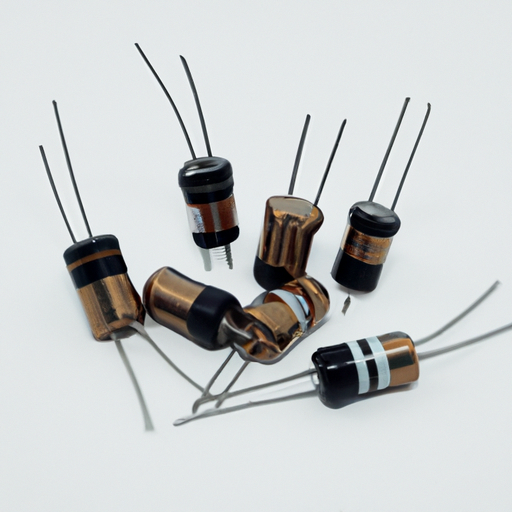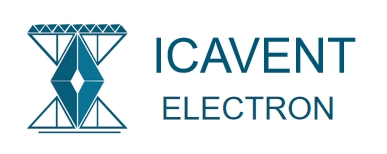What are the Product Features of Capacitor Manufacturers?

I. Introduction
Capacitors are fundamental components in electronic circuits, serving as energy storage devices that can release energy when needed. They play a crucial role in various applications, from smoothing out voltage fluctuations in power supplies to enabling signal processing in communication devices. The capacitor manufacturing industry has evolved significantly, driven by advancements in technology and the increasing demand for high-performance electronic components. This blog post will explore the various types of capacitors, their key product features, manufacturing processes, customization options, and market trends.
II. Types of Capacitors
Capacitors come in various types, each with unique characteristics and applications. Understanding these types is essential for selecting the right capacitor for specific needs.
A. Ceramic Capacitors
Ceramic capacitors are widely used due to their small size and reliability. They are made from ceramic materials and are available in various capacitance values.
Characteristics: They have low equivalent series resistance (ESR) and high stability over temperature and voltage.
Applications: Commonly found in decoupling and filtering applications in consumer electronics.
B. Electrolytic Capacitors
Electrolytic capacitors are polarized components that offer high capacitance values in a relatively small package.
Characteristics: They have a higher capacitance per volume compared to other types but are limited by their voltage ratings and polarity.
Applications: Frequently used in power supply circuits and audio applications.
C. Film Capacitors
Film capacitors use a thin plastic film as the dielectric material, providing excellent stability and low losses.
Characteristics: They are non-polarized and have a long lifespan, making them reliable for various applications.
Applications: Used in timing circuits, audio equipment, and power electronics.
D. Tantalum Capacitors
Tantalum capacitors are known for their high capacitance and small size, making them suitable for compact electronic devices.
Characteristics: They have stable electrical characteristics and are less prone to failure than electrolytic capacitors.
Applications: Commonly used in military and aerospace applications, as well as in portable electronics.
E. Supercapacitors
Supercapacitors, or ultracapacitors, bridge the gap between traditional capacitors and batteries, offering high energy storage capacity.
Characteristics: They can charge and discharge rapidly, making them ideal for applications requiring quick bursts of energy.
Applications: Used in energy storage systems, regenerative braking in electric vehicles, and backup power supplies.
III. Key Product Features of Capacitor Manufacturers
When selecting capacitors, several key product features should be considered to ensure optimal performance in specific applications.
A. Capacitance Range
Capacitance is a measure of a capacitor's ability to store electrical energy. Manufacturers offer a wide range of capacitance values, from picofarads (pF) to farads (F).
Low, Medium, and High Capacitance Options: Different applications require different capacitance levels. For instance, decoupling capacitors may need low capacitance, while energy storage applications may require high capacitance.
Importance of Capacitance in Applications: Selecting the right capacitance is crucial for circuit performance, affecting timing, filtering, and energy storage capabilities.
B. Voltage Ratings
Voltage ratings indicate the maximum voltage a capacitor can handle without failing.
Explanation of Voltage Ratings: Capacitors are rated for specific voltages, and exceeding this rating can lead to breakdown and failure.
Importance of Voltage Ratings in Circuit Design: Proper voltage rating selection is essential to ensure reliability and safety in electronic designs.
C. Tolerance Levels
Tolerance refers to the allowable variation in capacitance from the specified value.
Definition of Tolerance: It is expressed as a percentage and indicates how much the actual capacitance can deviate from the nominal value.
Impact of Tolerance on Performance: Tight tolerance capacitors are critical in precision applications, while looser tolerances may be acceptable in less critical circuits.
D. Temperature Coefficients
Temperature coefficients describe how capacitance changes with temperature.
Explanation of Temperature Coefficients: Different materials have different temperature coefficients, affecting performance in varying environmental conditions.
Importance in Various Environments: Capacitors used in automotive or industrial applications must withstand extreme temperatures without significant performance degradation.
E. Size and Form Factor
Capacitors come in various sizes and shapes, impacting their suitability for different applications.
Different Sizes and Shapes Available: From surface-mount devices (SMD) to through-hole components, the choice of form factor can affect PCB design and layout.
Importance of Form Factor in Design: Designers must consider space constraints and thermal management when selecting capacitors.
F. Lifespan and Reliability
The lifespan of a capacitor is influenced by several factors, including operating conditions and manufacturing quality.
Factors Affecting Lifespan: High temperatures, voltage stress, and ripple current can shorten a capacitor's life.
Reliability Testing and Standards: Manufacturers often adhere to industry standards to ensure their products meet reliability expectations.
G. ESR (Equivalent Series Resistance)
ESR is a critical parameter that affects a capacitor's performance, particularly in high-frequency applications.
Definition and Significance: ESR represents the resistive losses within the capacitor and can impact efficiency and heat generation.
Impact on Performance: Low ESR is desirable for applications like power supplies and audio equipment, where efficiency is crucial.
H. Self-Resonant Frequency
Self-resonant frequency is the frequency at which a capacitor's reactance becomes zero.
Explanation of Self-Resonance: At this frequency, the capacitor behaves like a short circuit, which can affect circuit performance.
Importance in High-Frequency Applications: Understanding self-resonance is vital for RF applications and signal integrity.
I. Environmental Considerations
With increasing awareness of environmental issues, manufacturers are focusing on sustainable practices.
RoHS Compliance: Many manufacturers comply with the Restriction of Hazardous Substances directive, ensuring their products are free from harmful materials.
Lead-Free Options: The shift to lead-free soldering processes has become standard in the industry.
Recycling and Sustainability Practices: Manufacturers are adopting recycling programs and sustainable materials to minimize environmental impact.
IV. Manufacturing Processes
The manufacturing process of capacitors involves several steps, from material selection to final testing.
A. Overview of Capacitor Manufacturing
Capacitor manufacturing typically includes processes such as material preparation, layering, assembly, and encapsulation.
B. Quality Control Measures
Quality control is critical in capacitor manufacturing to ensure reliability and performance. Manufacturers implement rigorous testing protocols at various stages of production.
C. Innovations in Manufacturing Technology
Advancements in manufacturing technology, such as automation and precision engineering, have improved the efficiency and quality of capacitor production.
V. Customization and Special Features
Capacitor manufacturers often offer customization options to meet specific customer needs.
A. Custom Capacitance Values
Manufacturers can produce capacitors with tailored capacitance values for unique applications.
B. Specialized Voltage Ratings
Custom voltage ratings can be developed for applications requiring specific performance characteristics.
C. Unique Form Factors for Specific Applications
Manufacturers can create capacitors in non-standard shapes and sizes to fit unique design requirements.
D. Application-Specific Capacitors
Some manufacturers design capacitors specifically for niche markets, such as automotive, aerospace, or medical applications.
VI. Market Trends and Future Directions
The capacitor market is experiencing significant growth, driven by technological advancements and increasing demand for electronic devices.
A. Growth of the Capacitor Market
The global capacitor market is expanding, fueled by the rise of consumer electronics, electric vehicles, and renewable energy technologies.
B. Emerging Technologies and Materials
Innovations in materials, such as graphene and organic capacitors, are paving the way for next-generation capacitors with improved performance.
C. Impact of Electric Vehicles and Renewable Energy
The shift towards electric vehicles and renewable energy sources is driving demand for high-capacity energy storage solutions, including supercapacitors.
D. Future Challenges and Opportunities
As technology evolves, capacitor manufacturers must address challenges such as miniaturization, increased performance demands, and environmental regulations while seizing opportunities in emerging markets.
VII. Conclusion
In summary, understanding the product features of capacitor manufacturers is essential for selecting the right components for electronic applications. Key features such as capacitance range, voltage ratings, tolerance levels, and environmental considerations play a significant role in performance and reliability. As the capacitor market continues to grow and evolve, manufacturers must adapt to changing technologies and customer needs. Selecting the right capacitor manufacturer is crucial for ensuring the success of electronic designs, and the future of capacitors in technology looks promising as innovations continue to emerge.
What are the Product Features of Capacitor Manufacturers?

I. Introduction
Capacitors are fundamental components in electronic circuits, serving as energy storage devices that can release energy when needed. They play a crucial role in various applications, from smoothing out voltage fluctuations in power supplies to enabling signal processing in communication devices. The capacitor manufacturing industry has evolved significantly, driven by advancements in technology and the increasing demand for high-performance electronic components. This blog post will explore the various types of capacitors, their key product features, manufacturing processes, customization options, and market trends.
II. Types of Capacitors
Capacitors come in various types, each with unique characteristics and applications. Understanding these types is essential for selecting the right capacitor for specific needs.
A. Ceramic Capacitors
Ceramic capacitors are widely used due to their small size and reliability. They are made from ceramic materials and are available in various capacitance values.
Characteristics: They have low equivalent series resistance (ESR) and high stability over temperature and voltage.
Applications: Commonly found in decoupling and filtering applications in consumer electronics.
B. Electrolytic Capacitors
Electrolytic capacitors are polarized components that offer high capacitance values in a relatively small package.
Characteristics: They have a higher capacitance per volume compared to other types but are limited by their voltage ratings and polarity.
Applications: Frequently used in power supply circuits and audio applications.
C. Film Capacitors
Film capacitors use a thin plastic film as the dielectric material, providing excellent stability and low losses.
Characteristics: They are non-polarized and have a long lifespan, making them reliable for various applications.
Applications: Used in timing circuits, audio equipment, and power electronics.
D. Tantalum Capacitors
Tantalum capacitors are known for their high capacitance and small size, making them suitable for compact electronic devices.
Characteristics: They have stable electrical characteristics and are less prone to failure than electrolytic capacitors.
Applications: Commonly used in military and aerospace applications, as well as in portable electronics.
E. Supercapacitors
Supercapacitors, or ultracapacitors, bridge the gap between traditional capacitors and batteries, offering high energy storage capacity.
Characteristics: They can charge and discharge rapidly, making them ideal for applications requiring quick bursts of energy.
Applications: Used in energy storage systems, regenerative braking in electric vehicles, and backup power supplies.
III. Key Product Features of Capacitor Manufacturers
When selecting capacitors, several key product features should be considered to ensure optimal performance in specific applications.
A. Capacitance Range
Capacitance is a measure of a capacitor's ability to store electrical energy. Manufacturers offer a wide range of capacitance values, from picofarads (pF) to farads (F).
Low, Medium, and High Capacitance Options: Different applications require different capacitance levels. For instance, decoupling capacitors may need low capacitance, while energy storage applications may require high capacitance.
Importance of Capacitance in Applications: Selecting the right capacitance is crucial for circuit performance, affecting timing, filtering, and energy storage capabilities.
B. Voltage Ratings
Voltage ratings indicate the maximum voltage a capacitor can handle without failing.
Explanation of Voltage Ratings: Capacitors are rated for specific voltages, and exceeding this rating can lead to breakdown and failure.
Importance of Voltage Ratings in Circuit Design: Proper voltage rating selection is essential to ensure reliability and safety in electronic designs.
C. Tolerance Levels
Tolerance refers to the allowable variation in capacitance from the specified value.
Definition of Tolerance: It is expressed as a percentage and indicates how much the actual capacitance can deviate from the nominal value.
Impact of Tolerance on Performance: Tight tolerance capacitors are critical in precision applications, while looser tolerances may be acceptable in less critical circuits.
D. Temperature Coefficients
Temperature coefficients describe how capacitance changes with temperature.
Explanation of Temperature Coefficients: Different materials have different temperature coefficients, affecting performance in varying environmental conditions.
Importance in Various Environments: Capacitors used in automotive or industrial applications must withstand extreme temperatures without significant performance degradation.
E. Size and Form Factor
Capacitors come in various sizes and shapes, impacting their suitability for different applications.
Different Sizes and Shapes Available: From surface-mount devices (SMD) to through-hole components, the choice of form factor can affect PCB design and layout.
Importance of Form Factor in Design: Designers must consider space constraints and thermal management when selecting capacitors.
F. Lifespan and Reliability
The lifespan of a capacitor is influenced by several factors, including operating conditions and manufacturing quality.
Factors Affecting Lifespan: High temperatures, voltage stress, and ripple current can shorten a capacitor's life.
Reliability Testing and Standards: Manufacturers often adhere to industry standards to ensure their products meet reliability expectations.
G. ESR (Equivalent Series Resistance)
ESR is a critical parameter that affects a capacitor's performance, particularly in high-frequency applications.
Definition and Significance: ESR represents the resistive losses within the capacitor and can impact efficiency and heat generation.
Impact on Performance: Low ESR is desirable for applications like power supplies and audio equipment, where efficiency is crucial.
H. Self-Resonant Frequency
Self-resonant frequency is the frequency at which a capacitor's reactance becomes zero.
Explanation of Self-Resonance: At this frequency, the capacitor behaves like a short circuit, which can affect circuit performance.
Importance in High-Frequency Applications: Understanding self-resonance is vital for RF applications and signal integrity.
I. Environmental Considerations
With increasing awareness of environmental issues, manufacturers are focusing on sustainable practices.
RoHS Compliance: Many manufacturers comply with the Restriction of Hazardous Substances directive, ensuring their products are free from harmful materials.
Lead-Free Options: The shift to lead-free soldering processes has become standard in the industry.
Recycling and Sustainability Practices: Manufacturers are adopting recycling programs and sustainable materials to minimize environmental impact.
IV. Manufacturing Processes
The manufacturing process of capacitors involves several steps, from material selection to final testing.
A. Overview of Capacitor Manufacturing
Capacitor manufacturing typically includes processes such as material preparation, layering, assembly, and encapsulation.
B. Quality Control Measures
Quality control is critical in capacitor manufacturing to ensure reliability and performance. Manufacturers implement rigorous testing protocols at various stages of production.
C. Innovations in Manufacturing Technology
Advancements in manufacturing technology, such as automation and precision engineering, have improved the efficiency and quality of capacitor production.
V. Customization and Special Features
Capacitor manufacturers often offer customization options to meet specific customer needs.
A. Custom Capacitance Values
Manufacturers can produce capacitors with tailored capacitance values for unique applications.
B. Specialized Voltage Ratings
Custom voltage ratings can be developed for applications requiring specific performance characteristics.
C. Unique Form Factors for Specific Applications
Manufacturers can create capacitors in non-standard shapes and sizes to fit unique design requirements.
D. Application-Specific Capacitors
Some manufacturers design capacitors specifically for niche markets, such as automotive, aerospace, or medical applications.
VI. Market Trends and Future Directions
The capacitor market is experiencing significant growth, driven by technological advancements and increasing demand for electronic devices.
A. Growth of the Capacitor Market
The global capacitor market is expanding, fueled by the rise of consumer electronics, electric vehicles, and renewable energy technologies.
B. Emerging Technologies and Materials
Innovations in materials, such as graphene and organic capacitors, are paving the way for next-generation capacitors with improved performance.
C. Impact of Electric Vehicles and Renewable Energy
The shift towards electric vehicles and renewable energy sources is driving demand for high-capacity energy storage solutions, including supercapacitors.
D. Future Challenges and Opportunities
As technology evolves, capacitor manufacturers must address challenges such as miniaturization, increased performance demands, and environmental regulations while seizing opportunities in emerging markets.
VII. Conclusion
In summary, understanding the product features of capacitor manufacturers is essential for selecting the right components for electronic applications. Key features such as capacitance range, voltage ratings, tolerance levels, and environmental considerations play a significant role in performance and reliability. As the capacitor market continues to grow and evolve, manufacturers must adapt to changing technologies and customer needs. Selecting the right capacitor manufacturer is crucial for ensuring the success of electronic designs, and the future of capacitors in technology looks promising as innovations continue to emerge.













